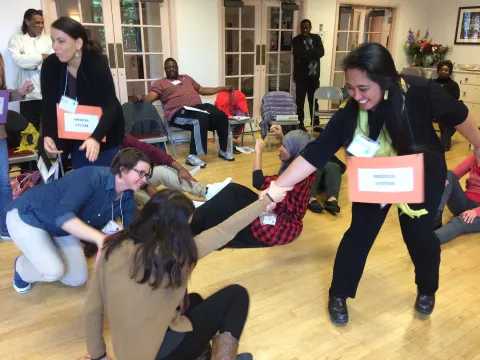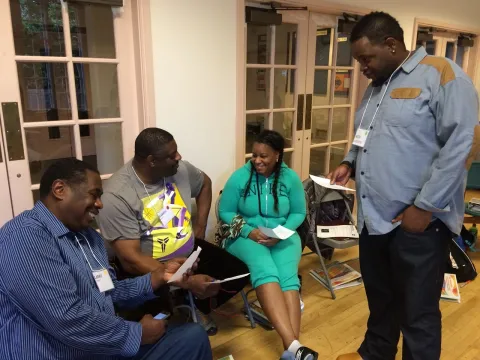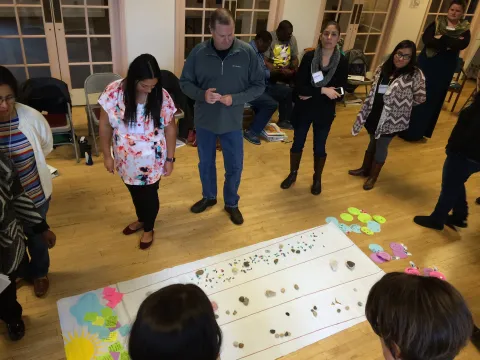Build a Training Program

Is your organization looking to build or strengthen its own community health worker (CHW) training program? The Community Partnerships & Capacity Building program can offer support and share their training curriculum. Email chw.partnership@multco.us to learn more.
We Are Health: Training for Community Health Workers
80-hour, foundational training follows national training standards for community health workers, and Oregon Health Authority guidance for certification. It reflects over 30 years of working with community health workers worldwide. It has 3 components:
- Skill base
- Orientation to the health and social service system
- Health issues
In English. Last updated in 2022.

Training Opportunities
These trainings are occasionally offered by the Health Department to help community health workers build their skills. Traditional health workers in Oregon may earn CEUs. Contact the organizer for a schedule.
Community Health Worker Supervisor’s Training
Enhance your capacity to supervise community health workers. You’ll learn:
- Basics of the CHW model
- The role of popular education
- Supervision models
- Qualities and skills of an effective CHW supervisor
- To apply trauma-informed supervision to support
- Practicing self-care
Qualifies for 6 CEUs. In English.
Contact: Community Partnerships & Capacity Building Program, chw.partnership@multco.us
Understanding Violence as a Public Health Issue

A 2-day training, offered in-person or virtual. Recommended for CHWs and open to anyone who works with those affected by violence.
Learn public health approaches to violence prevention, identify root causes of violence and ways to address them. We’ll also cover self-care techniques. Qualifies for 8 CEUs. In English.
Contact: Community & Adolescent Health, cahinfo@multco.us
Know Your River, Know Your Food
This workshop covers the contamination and cleanup of the Willamette River in Portland. Learn about how eating contaminated seafood impacts health, and have a chance to tour the river. Qualifies for 6 CEUs.
Contact: Beth Appert, beth.appert@multco.us
Community Health Worker Certification
We no longer provide community health worker foundational training. If your organization is interested in training CHWs, please contact us at chw.partnership@multco.us
Traditional health worker training programs in Oregon»
Contact Us
Community Partnerships & Capacity Building Program
Beth Poteet, 503-314-3136
chw.partnership@multco.us
